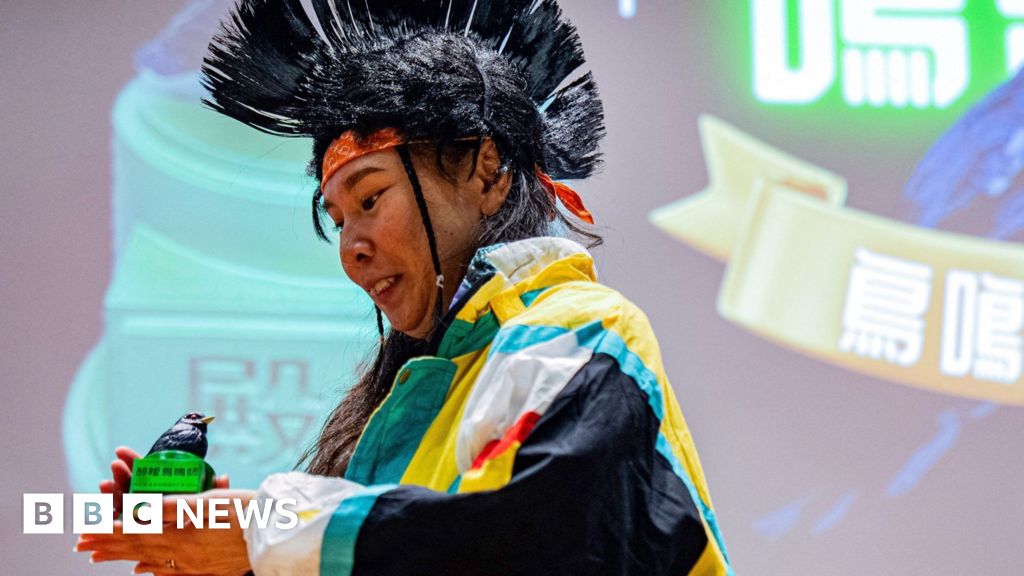In a poignant farewell, the League of Social Democrats (LSD), one of Hong Kong's last significant pro-democracy parties, announced its disbandment on Sunday, with current and former members gathering to reflect on nearly two decades of activism. Surrounding their headquarters adorned with a banner proclaiming "rather be ashes than dust," party chair Chan Po Ying revealed that the decision came amid mounting pressures and an increasingly oppressive political climate.
“Our decision to disband was made after careful consideration to evade potential repercussions for our members,” Chan stated, echoing the sentiment shared by many in the now-quieted streets of the city. The announcement coincides chillingly with the fifth anniversary of the Beijing-imposed national security law, an enduring symbol of curtailed freedoms. The LSD joins two other major opposition groups that have folded this year, highlighting the chilling effect of government scrutiny over dissent.
In a statement, the party lamented the hardships faced throughout its existence, characterizing the current environment as replete with "red lines" that permeate every facet of life. Chan's tearful press conference encapsulated the sorrow felt by many who see their efforts dissolve under the weight of increasing authoritarianism. The national security law, which succeeded after a series of protests in 2019, has often been criticized for targeting political opposition and dissenting voices.
Amidst public accusations of political repression, vice-chairman Dickson Chau expressed his frustration about the safety of active politicians in Hong Kong. “The landscape has shifted dramatically,” he noted, adding that running a political party now seems almost untenable. With much of the opposition either jailed or forced to flee, everyday citizens also face potential repercussions for any expression of political dissent.
Just this June, LSD members faced legal challenges for displaying a banner while conducting fundraising—a clear indication of how severely even benign forms of activism can be met with official ire. As the pressure mounts, Chau emphasized the broader implications for civic engagement, stating, “Without any meaningful political party, people will forget their collective strength to voice their concerns.”
Reflecting on the difficulty of navigating a landscape hostile to activism, Chau lamented, “It's a dilemma I never anticipated facing in Hong Kong.” The situation remains precarious, and he forewarned that the difficulties in exercising citizen rights extend beyond politicians and activists to ordinary individuals who must now navigate the treacherous waters of political expression. The future of Hong Kong illuminates a troubling path, one where protests and political expression become historical memories overshadowed by government scrutiny.
“Our decision to disband was made after careful consideration to evade potential repercussions for our members,” Chan stated, echoing the sentiment shared by many in the now-quieted streets of the city. The announcement coincides chillingly with the fifth anniversary of the Beijing-imposed national security law, an enduring symbol of curtailed freedoms. The LSD joins two other major opposition groups that have folded this year, highlighting the chilling effect of government scrutiny over dissent.
In a statement, the party lamented the hardships faced throughout its existence, characterizing the current environment as replete with "red lines" that permeate every facet of life. Chan's tearful press conference encapsulated the sorrow felt by many who see their efforts dissolve under the weight of increasing authoritarianism. The national security law, which succeeded after a series of protests in 2019, has often been criticized for targeting political opposition and dissenting voices.
Amidst public accusations of political repression, vice-chairman Dickson Chau expressed his frustration about the safety of active politicians in Hong Kong. “The landscape has shifted dramatically,” he noted, adding that running a political party now seems almost untenable. With much of the opposition either jailed or forced to flee, everyday citizens also face potential repercussions for any expression of political dissent.
Just this June, LSD members faced legal challenges for displaying a banner while conducting fundraising—a clear indication of how severely even benign forms of activism can be met with official ire. As the pressure mounts, Chau emphasized the broader implications for civic engagement, stating, “Without any meaningful political party, people will forget their collective strength to voice their concerns.”
Reflecting on the difficulty of navigating a landscape hostile to activism, Chau lamented, “It's a dilemma I never anticipated facing in Hong Kong.” The situation remains precarious, and he forewarned that the difficulties in exercising citizen rights extend beyond politicians and activists to ordinary individuals who must now navigate the treacherous waters of political expression. The future of Hong Kong illuminates a troubling path, one where protests and political expression become historical memories overshadowed by government scrutiny.




















